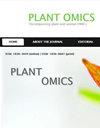一个有效的热冲击方案转化根农杆菌不自发产生抗生素耐药性
Q3 Agricultural and Biological Sciences
引用次数: 3
摘要
当使用抗生素治疗细菌感染或从体外培养物中选择转化细菌无效时,就会发生抗生素耐药性。虽然这种现象主要在医学上观察到,但在进行基于细菌的遗传转化实验时,它也会影响科学研究的成功。在植物细胞、组织和器官的农业转化过程中,农杆菌获得抗生素耐药性的现象已经被广泛观察到,这给转化细菌的选择带来了困难。本研究的目的是建立一种不自发产生抗生素抗性的根农杆菌热休克转化方案,以提高其产生转基因毛状根的敏感性和特异性。细菌转化后,在液体培养基中培养,在固体培养基上镀,分离菌落。通过PCR和β-葡萄糖醛酸酶测定证实了细菌和植物组织的遗传转化。采用链霉素、卡那霉素和氨苄西林筛选根状芽孢杆菌菌株LBA 9402、A4和15834,评价方法的重复性。本文章由计算机程序翻译,如有差异,请以英文原文为准。
An efficient heat-shock protocol for transformation of Agrobacterium rhizogenes without spontaneous generation to antibiotic resistance
Antibiotic resistance occurs when the use of antibiotics to treat bacterial infections or to select for transformed bacteria from in vitro cultures becomes ineffective. Although this phenomenon is primarily observed in medicine, it also affects the success of scientific research when bacterial-based genetic transformation experiments are performed. During the agrotransformation of plant cells, tissue, and organs, the acquisition of antibiotic resistance by Agrobacterium spp. has been widely observed, making it difficult to select for the transformed bacteria. The objective of this study was to develop a heat-shock protocol for the transformation of Agrobacterium rhizogenes without the spontaneous generation of antibiotic resistance, to increase its sensitivity and specificity to produce transgenic hairy roots. After the bacterium was transformed, it was cultured in liquid culture medium and plated on solid medium to isolate colonies. The genetic transformation of the bacteria and the plant tissue was verified by PCR and by β-glucuronidase assays. The reproducibility of the method was assessed among the A. rhizogenes strains LBA 9402, A4 and 15834 using streptomycin, kanamycin and ampicillin for selection.
求助全文
通过发布文献求助,成功后即可免费获取论文全文。
去求助
来源期刊

Plant Omics
生物-植物科学
CiteScore
1.30
自引率
0.00%
发文量
0
审稿时长
6 months
期刊介绍:
Plant OMICS is an international, peer-reviewed publication that gathers and disseminates fundamental and applied knowledge in almost all area of molecular plant and animal biology, particularly OMICS-es including:
Coverage extends to the most corners of plant and animal biology, including molecular biology, genetics, functional and non-functional molecular breeding and physiology, developmental biology, and new technologies such as vaccines. This journal also covers the combination of many areas of molecular plant and animal biology. Plant Omics is also exteremely interested in molecular aspects of stress biology in plants and animals, including molecular physiology.
 求助内容:
求助内容: 应助结果提醒方式:
应助结果提醒方式:


